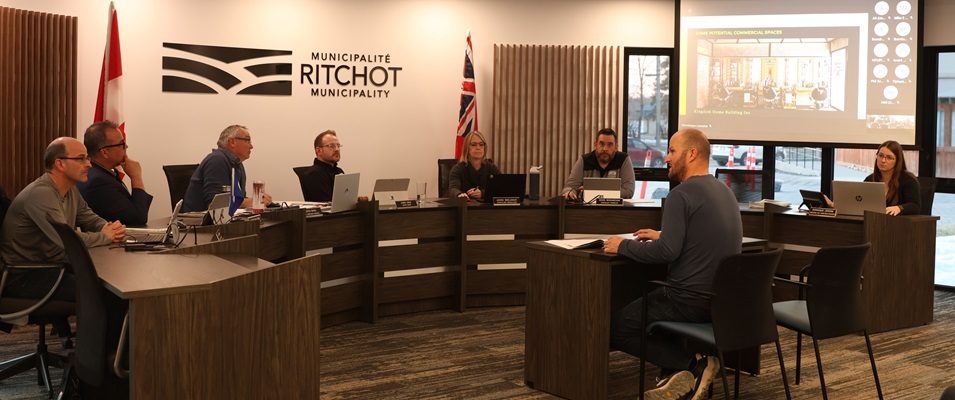
According to Statistics Canada, based on data from 2022, 27 percent of Canadians aged 15 years and older live with at least one kind of disability.1 This being true, much work needs to be done to make our communities more accessible.
That percentage jumped almost five percent over the same survey five years previous. The stark increase can be attributed to Canada’s growing senior population.
Even so, disabilities can affect people across every age group from infancy to adulthood.
The term disability, too, is broad and refers to far more than just physical impairments. It can mean impairments to hearing, sight, and dexterity. It may be pain-related or affect a person’s learning, memory, or mental wellness.
For the sake of this article, The Citizen will focus primarily on barriers to people with physical disabilities, recognizing that every form of disability deserves careful consideration.
In recent years, government agencies have been working to identify, remove, and prevent barriers for people with disabilities. This is in service of the laudable aspiration to create barrier-free communities, workplaces, and services for all Canadians.
On a federal level, the Accessible Canada Act came into effect in 2019. Its overarching goal is to realize a barrier-free country by 2040.
In 2013, the provincial government enacted the Accessibility for Manitobans Act. Manitoba was the second province, after Ontario, to introduce accessibility legislation.
Municipalities and incorporated communities, such as Ritchot and Niverville, are required to create accessibility plans and update them every two years. Both councils have completed theirs and copies are available to the public upon request.
How Are Ritchot and Niverville Doing?
The Citizen reached out to residents for feedback on how well their community is doing in terms of accessibility.
Former Île-des-Chênes (IDC) resident Shay Hawthorne is mother to a child with a disability. The community is still her destination for most commercial and sporting needs.
“I feel for anyone with the slightest mobility restriction, let alone wheelchairs, walkers, or even parents with strollers,” Hawthorne says of those trying to navigate IDC.
Her list of concerns includes sidewalks that don’t connect, roads in a chronic state of disrepair, as well as poor access to public buildings, such as the arena.
Of course, recent construction along Main Street has made things even more difficult.
IDC resident Jeremy Samborski agrees.
“The sidewalk beside the cemetery is very bad,” Samborski says. “They fixed one section on it, but the other part is horrible. Most have started walking through the cemetery to avoid the sidewalk.”
The lack of any sidewalk on Dufault Drive is also a concern to Samborski.
Residents of St. Adolphe have identified sidewalks in poor condition and note that the town’s businesses aren’t built to accommodate people with walkers, wheelchairs, or mobile scooters. Some concrete approaches are broken and ramps have steep inclines.
As for Niverville, one resident, Jaelyn Heide, says that while many people point out the hazards along sidewalks in the older part of the community, they’re probably still in better condition than many in the city.
“What I enjoy is the fact that they are sanded in the winter, which makes me less likely to slip when using my cane,” Heide says. “What I’d like to see more of is benches along Main Street. If one is wanting to work on strength, their only option with benches is Hespeler Park. But I don’t drive and like to walk to places to get my medication and mail. It would be much easier if there were more benches. So far, the only ones I’ve seen are at the credit union.”
Consulting An Expert
Jared Funk is a lifelong resident of Niverville. Thirty-two years ago, a tragic car accident left him a quadriplegic.
Despite the incredible loss, Funk has built a legacy that would make anyone proud. He’s married with a family and has competed in three Paralympics, taking home a medal from each one.
Funk has worked for Spinal Injury Manitoba and currently works as a transitional specialist to help the newly injured get outfitted with needed supplies. As well, he provides them with peer support counselling.
He’s also the acting vice president of Accessible Sports Connection Manitoba and is responsible for bringing an adaptive expo to the CRRC this past spring.
When Niverville was a smaller place, Funk says, fewer residents needed disability consideration. Today, those numbers are climbing along with the growing population.
“I used to just work around everything,” says Funk. “I adapted. And if it wasn’t accessible, I just never went there. But nowadays the town is getting so big. Almost city status.”
He lauds the town for being proactive in terms of including accessibility features at the CRRC and the town office. In recent weeks, the centennial arena underwent a retrofit to improve accessibility both to the front entrance and the washrooms. Unfortunately, access to the arena’s indoor seating still hasn’t been addressed.
New features around the community have also been installed, such as tactile pads at intersection approaches for the sight-impaired.
Still, there is so much to be done to make the community barrier-free.
“I love that they have that nice new adaptive playground at Hespeler Park, but there’s ten other parks in town here that [a child] in a wheelchair can’t use because it’s gravelled,” says Funk.
The pavilion along Hampton Drive is another example of a structure created for public use that can’t be easily accessed by people with physical impairments.
And other recent infrastructure designs leave the impression that people with disabilities weren’t consulted.
Two examples, Funk says, are the CRRC and Niverville High School. Only recently were the handicap parking spots moved to the front of the CRRC’s main doors. Originally they were located beyond the EV charging stalls.
The high school’s handicap parking is still poorly located.
“You have kids that have disabilities, too,” Funk says. “The handicap parking is almost the farthest thing away from the school. Even the teachers’ parking is closer. And there’s no nearby curb cut to get up [onto the sidewalk]. You have to go all the way around to the street and then there’s an approach [by the front door].”
There is a second curb cut located at the daycare door, but both options require a long, circuitous trek to get into the school. Add some winter snow and ice and it becomes almost impossible to get inside, Funk says.
Another major oversight when it comes to handicap parking stalls is the fact that they are marked with paint on concrete. For three or four months of the year, those markings disappear under layers of snow and ice.
Instead he’d like to see councils and business owners put up standing signs in front of each spot. It’s an inexpensive fix that would make a world of difference.
Sidewalks, even in good condition, are also a concern. Some areas along Main Street, like at Wiens Furniture or Niverville Physiotherapy, have steep grades which make navigation with a wheelchair or walker difficult or even dangerous.
And then there’s the conversation about curb cuts. Unless they’re adequately marked, drivers regularly park in front of them, blocking access.
“There’s [curb cuts] like the one in front of the chiropractor where people park and I have to go all the way around to the nearest street corner and up the sidewalk to get [to the chiropractor].”
One forward-thinking community is the town of Morris, Funk says. Here, curb cut areas are painted blue in contrast to the yellow on the rest of the curb. This way, the curb cuts stand out and remind drivers to keep them accessible.
While Niverville’s administration has been working hard to make their public buildings more accessible, Funk says that a lot of local businesses could work harder. Access is made difficult or impossible due to either a lack of ramps or the use of very steep ramps. Door sills can be tough to wheel over without extra assistance, especially when attempting to hold a door that isn’t automated.
“Sometimes it’s the little things, but the little things can cause a lot [of grief],” Funk says. “It’s not multi-million dollar stuff. It’s literally a thousand dollars here and a thousand dollars there [to bring things] to code.”
Working in the field of disabilities, Funk is aware that many government grants are available for accessibility improvements. People just need to apply.
As well, he’s prepared to offer his expertise to any local business that’s interested in discovering where improvements could be made.
If that’s not enough incentive, the Accessibility for Manitoba website says that people with disabilities have an estimated spending power of $40 million across Canada. If a business isn’t accessible, that business is losing out.
While Funk can appreciate federal and provincial efforts to develop accessibility standards, he’s disappointed that they have no teeth. In other words, there are few penalties for noncompliance.
The same is true for current building codes, he says, where accessibility is more of a recommendation.
Work of Local Councils
In fairness to both Niverville and Ritchot councils, it would be an expensive venture to create barrier-free communities overnight, especially in older neighbourhoods. Indeed, it’s good fiscal management to spread these improvements over a reasonable period of time.
Creating a plan is often the best way to accomplish this sort of gradual change.
Mitch Duval, CAO of Ritchot, says that the RM is taking accessibility seriously. In fact, a Ritchot seniors group was consulted in January of this year.
“As we see and are made aware of issues, and as community projects come up, we take accessibility into account as part of our decision-making process to improve on current situations,” says Duval. “The RM also has an accessibility plan that we review and update every two years. It lists many accessibility achievements that we are proud of.”
Some of the achievements both councils can attest to are the allowance for service animals in public spaces and mobility-friendly civic offices. As well, Niverville and Ritchot staff have received training on accessible customer service.
In Ritchot, the use of an online service tracker allows residents to share their concerns with the municipality from their home devices. At the same time, residents with disabilities can attend council meetings virtually.
Other action plan items have been designated for either this year or next year. They include ensuring that public events are accessible upon request, reviewing community buildings and arenas for accessibility, and purchasing chairs with armrests so attendees in council chambers have extra support.
Cyrus Reimer, director of communications for the town of Niverville, says that the town has worked hard to meet or exceed those the province’s accessibility standards since they were created.
“Every two years we are required to submit our accessibility plan to the province,” says Reimer. “This plan highlights areas that we are looking to improve in and areas that we have had success in. This helps the town to continually work towards improving accessibility.”
One of the improvements planned for the near future is to add braille to all directional signage within town limits.
Reimer agrees with Funk, though, that there doesn’t appear to be any enforcement mechanisms in place to ensure compliance.




















